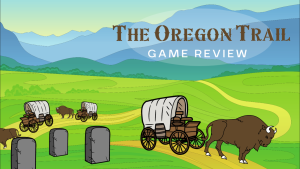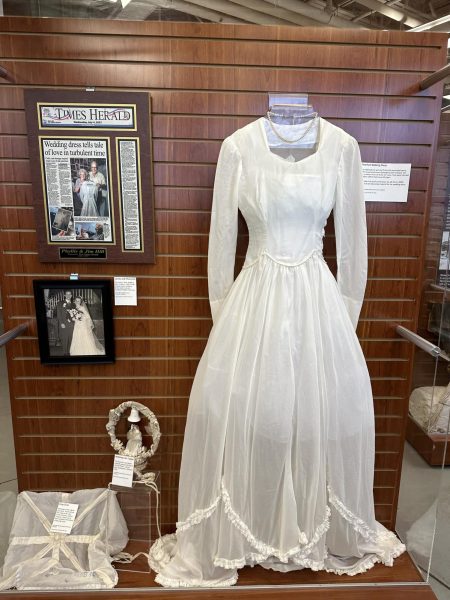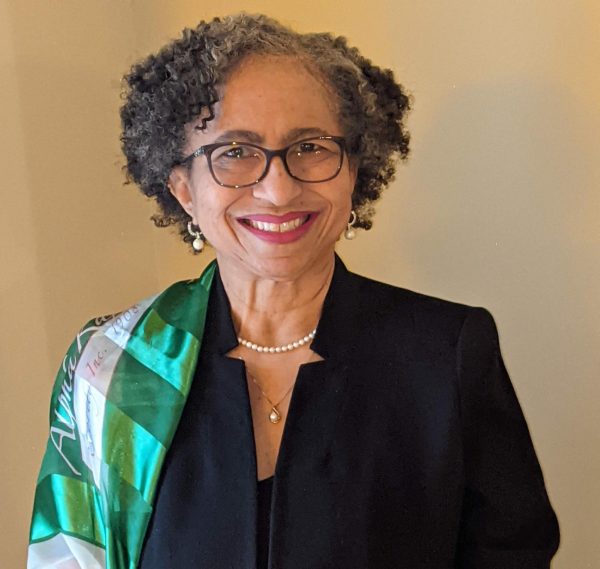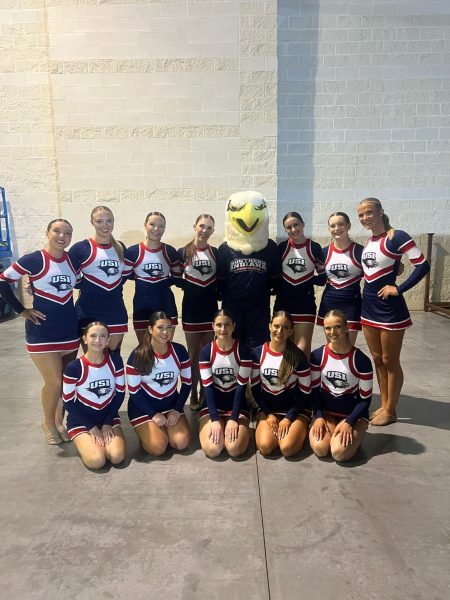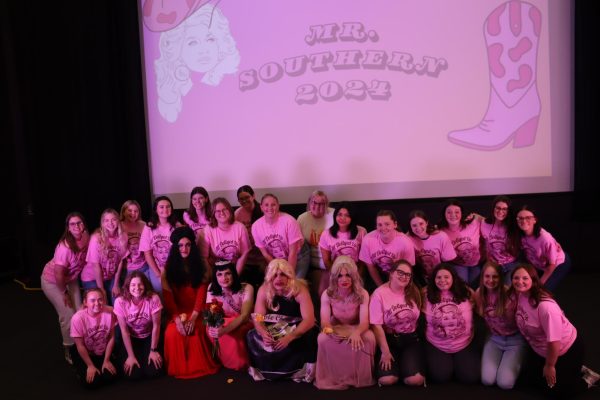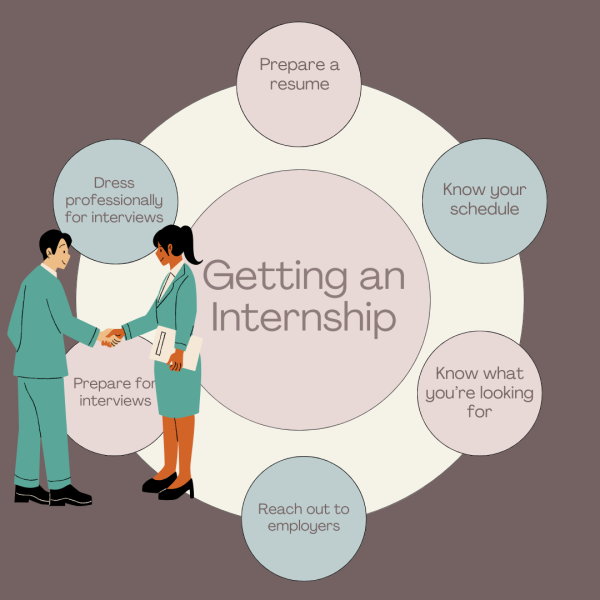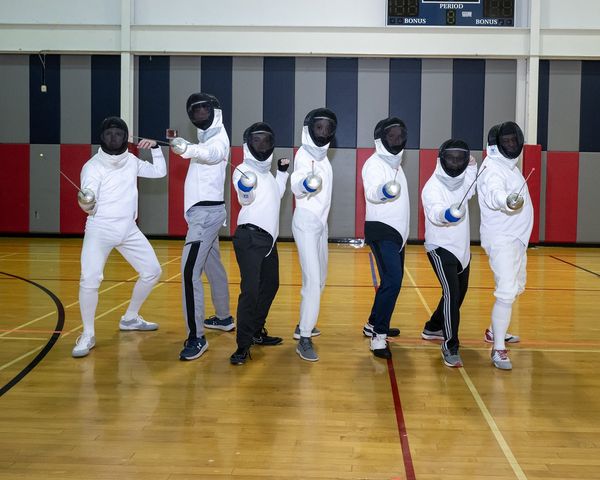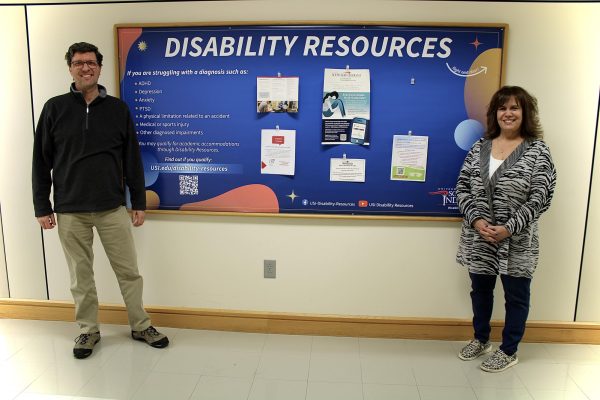Harold Calloway: From USI’s first Black administrator to Board of Trustees member
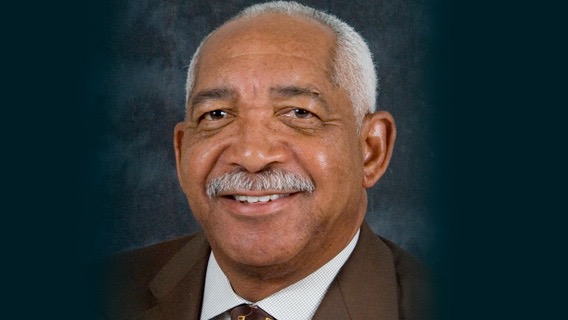
Photo courtesy of USI Photography & Multimedia
Harold Calloway has served on USI’s Board of Trustees for nearly 20 years, and was USI’s first black administrator. Calloway shares the triumphs and challenges he faced throughout his life.
February 22, 2023
USI students are likely familiar with the board of trustees but don’t know how they came to be in their positions. Many trustees have been successful in their careers, are involved in their community, display high qualities of leadership and have served for many years on the board. Harold Calloway, in particular, has made a lasting impact on the university’s history.
Calloway began his career at USI, formerly the University of Indiana State Evansville, as the director of financial aid from 1973-1985. He was the first Black administrator at the university. He’d eventually come back to the university to serve on the board of trustees in 2006, and he’s served on the board for nearly 20 years.
Born and raised in Philadelphia, Mississippi, Calloway lived on a farm that raised everything from cows and turkeys to cotton and sugarcane.
“If you worked hard during the spring and summer, you would expect the harvest,” Calloway said. “That’s kind of my philosophy. Work hard, and you would get whatever opportunities come your way.”
After graduating from George Washington Carver High School, he went on to study at Mary Holmes College on a basketball scholarship.
I grew up in the South on a farm. I know that hard work and persistence pays off. So that’s what I did and was able to do the job, and I think I did the job well.
— Harold Calloway
Calloway lived through the height of the civil rights movement. On June 21, 1964, three civil rights workers were killed by the Klu Klux Klan with the help of the deputy sheriff in Neshoba county.
“We thought it was time for a change,” Calloway said. “In college, we marched in the civil rights movement, got arrested because we were marching. We’re all marching for the rights of individuals in the little town where I was going to school. But growing up in a segregated environment, you learn to deal with all kinds of people.”
After finishing college, he was drafted to serve as an infantryman in Vietnam. When he returned home, he finished his master’s degree at the University of Evansville and began working in the greater community.
He began as a caseworker for the Vanderburgh County Welfare Department and eventually became the headstart director of the Community Action Program, which provided educational and developmental services to low-income families of preschoolers. In 1973, he began his career as the director of financial aid at ISUE, now known as USI.
“I was a pretty young guy when I came up here,” Calloway said. “My experience at USI, ISUE at the time, has been wonderful. When I came to work there, I could tell everybody embraced me. I grew up in the South on a farm. I know that hard work and persistence pays off. So that’s what I did and was able to do the job, and I think I did the job well. I never had one problem with any student.”
Fear is false evidence appearing to be real.
— Harold Calloway
Calloway worked at USI until 1985, when he was offered a job working in business full-time at State Farm Insurance. He worked there for 34 years until he retired in 2019.
In a 2020 interview, Calloway said, “There was some concern an African American couldn’t sell to white people.” Although he was afraid he had made a mistake switching careers, he was surprised by the positive reaction he received from the majority of his clients.
“Fear is false evidence appearing to be real,” Calloway said. “But what happened is, I have two kids, a house, a wife, utilities. I needed food. So I had to go out there and do what I had to do. There were classes of people that did not give me an appointment because of who I am, but there were a whole lot more that did, and I was pleasantly surprised.”
“It was a good lesson to look at the human being part of people,” he said. “People of all colors basically want the same thing. They want safety. They want opportunities to participate, and they want opportunities for their children. Those are not just Black dreams, those are everybody’s dreams.”
Although Calloway was very successful at State Farm, he always had a desire to come back and serve at USI.
People of all colors basically want the same thing. They want safety. They want opportunities to participate, and they want opportunities for their children. Those are not just Black dreams, those are everybody’s dreams.
— Harold Calloway
“When I left USI, I asked the Lord, ‘One of these days, I would like to come back and be on the board of trustees,’” Calloway said. “To be honest with you, there was a couple of people that I thought they were not necessarily as fair with me as I thought they should have been. It was kind of a vindictive thing.”
“But as life evolved, what God has a tendency to do is to prepare you for an assignment. But sometimes, he has to prepare your heart first,” he said. “So what he did for me was he prepared me to be able to go back out there to be on board trustees, but he prepared my heart so that didn’t feel that way about those people that I did when I left there. That’s the way things happen sometimes.”
After being offered both the position as the insurance commissioner and the chairman of the Indiana Gaming Commission by former Governor Mitch Daniels, Dr. Ray Hoops requested that Calloway would serve on the board of trustees. He was appointed in 2006.
“It’s been an absolute joy,” Calloway said. “We’ve made some astounding accomplishments.”
Since then, he’s watched USI improve as an academic institution, in the quality of students produced, in community relations and in Division I sports since the transition.
Black people, they like seeing people like them in positions of responsibility,” Calloway said. “My communication to them has always been, ‘The harder you work, the luckier you get.’
— Harold Calloway
“I think all those things have been a significant contribution from the time I started working here,” he said. “When I started working out there, we only had two buildings. The Wright Building and the library. So, I’ve seen a transition over the years that has been phenomenal.”
He hopes to see all students on campus thrive, but he notes the important influence he has on Black students as well.
“Black people, they like seeing people like them in positions of responsibility,” Calloway said. “My communication to them has always been, ‘The harder you work, the luckier you get.’ I want them to represent USI well academically and professionally. They see people like Dr. Rochon and others that have been successful, and they know they can do it too. All you have to do is go to work and work hard. Because this is America, and everything is possible in America.”
Calloway said students should not only think of their education as a way to provide an income for themselves but also as a way of impacting the world in a positive way.
“One thing we have to realize is that education is made to live with, not live on,” he said. “Basically, what we try to do is pass the baton back to the younger folk, so they can make our community a whole lot better than it’s been in the past.”
Remember that we have a responsibility to mankind to to make sure that we leave this place as well or better than we found it when we came.
— Harold Calloway
Calloway said the university has a five to 10-year university improvement plan, but the present problem is enrollment. He hopes potential students will find opportunity at USI, making it their first and best choice of college, especially in the regions around Southwest Indiana, Eastern Illinois and Western Kentucky.
“This is our backyard, and we offer quality products,” he said.
He thanks the student alumni for proving that they can compete on a higher level in the occupational world and encourages the office to enroll more students so they can have the same opportunities.
“So that’s the encouragement I would give,” Calloway said. “Get your education, but also remember that we have a responsibility to mankind to make sure that we leave this place as well or better than we found it when we came.”


